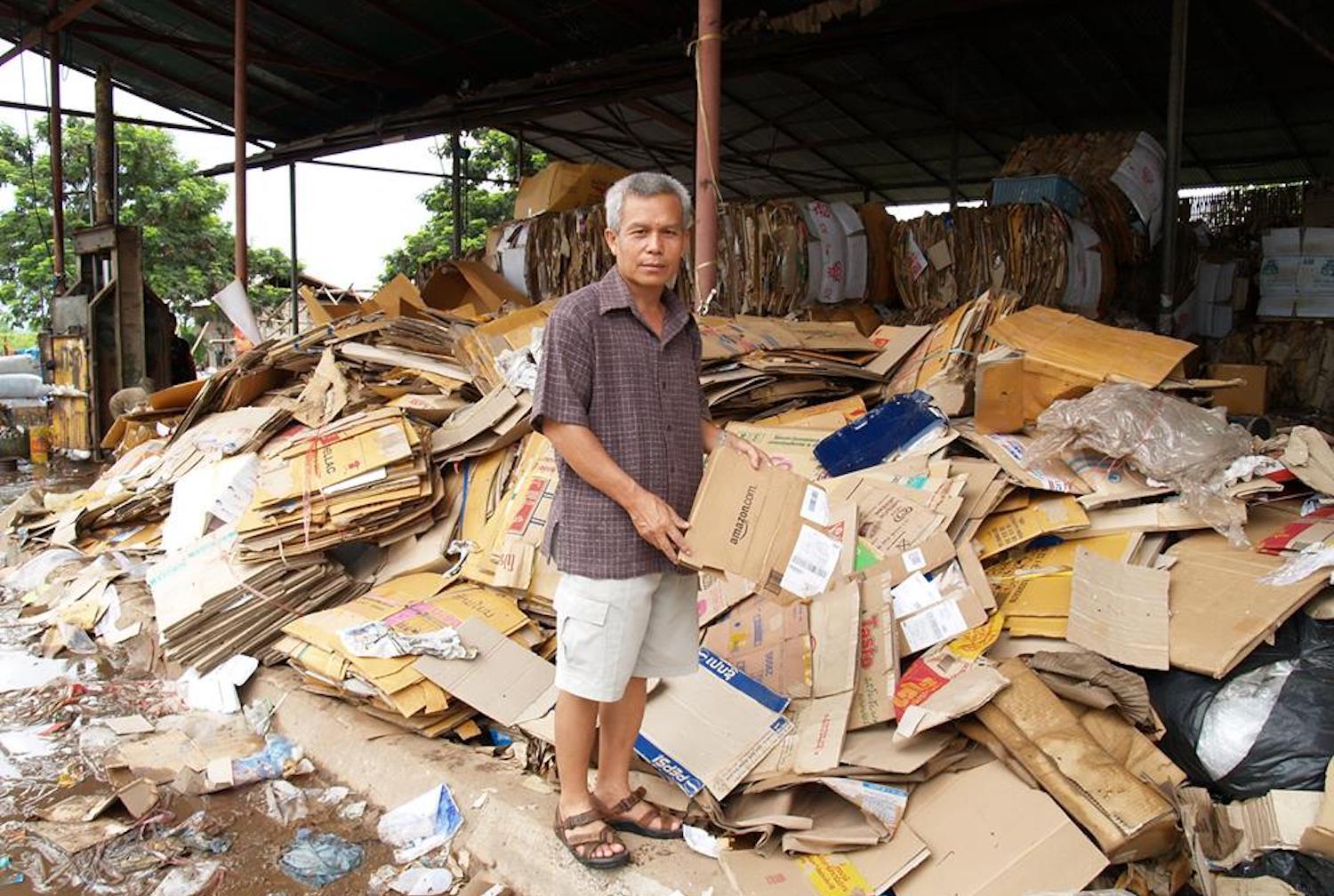Reuters Foundation: 12 December 2013
By Thin Lei WIn

BANGKOK – On the evening of Dec 15, 2012, Sombath Somphone, possibly Laos’ most prominent activist, left his office in the capital Vientiane and headed home for dinner. He never arrived.
Security camera footage obtained by his wife, Ng Shui Meng, showed police stopping his jeep at a police post and taking him inside. A motorcyclist drove up, stopped and drove away in Sombath’s jeep.
Later, a car with flashing lights stopped at the post. Two people got out, fetched Sombath from the police post and put him in their car, and drove off into the darkness. He has not been seen since.
Ng is still trying to find out what happened to her husband, winner of the 2005 Ramon Magsaysay Award for community leadership – the region’s equivalent of the Nobel Prize – and founder of the Participatory Development Training Centre (PADETC), and where he is.
“There were no warnings,” Ng told journalists in Bangkok on Wednesday night. Since Sombath, 60, disappeared, “a wall of silence has fallen in Vientiane and the rest of Laos,” she added.
Despite international pressure, the authoritarian government of poverty-stricken Laos has denied involvement in his disappearance but said nothing more.
Laotian courts, too, have not been helpful.
Ng said she wrote to the relevant court asking it to pursue the matter. “They received my letter but when I followed up, they said they had lost the letter,” she said, sitting in front of a large yellow banner bearing her husband’s smiling face and the caption “Please return Sombath safely.”
She has not given up hope.
“I sincerely hope that with time, we’ll see Sombath return safely,” she said. “He’s not provocative … he’s a man of peace, and he just wants to do work which is meaningful for his country and for his people.”
“I hope this message goes up (to the authorities) and somebody is hearing this or reading all the letters I’ve written so far. But I have no way to know,” Ng added.
CRIME AGAINST HUMANITY
Human Rights Watch has said there is “strong evidence” that what happened to Sombath was an “enforced disappearance”, meaning “the arrest or detention of a person by state officials or their agents followed by a refusal to acknowledge the deprivation of liberty, or to reveal the fate or whereabouts of the person.”
On Wednesday, rights groups including HRW and Amnesty in Japan urged Japanese Prime Minister Shinzo Abe to raise Sombath’s case with Laotian Prime Minister Thongsing Thammavong at a forthcoming regional summit. Japan is the largest bilateral donor to Laos.
“Enforced disappearance is a crime against humanity,” said Pablo Solón, executive director of civil society group Focus on the Global South. “When someone is killed you have a great pain … but you have the body, you know where he’s going to lie,” he added.
Solón, a former Bolivian ambassador to the United Nations and the country’s chief climate negotiator, was speaking from personal experience. His brother disappeared in 1972 during the dictatorship of Hugo Banzer.
Laos, a landlocked Communist country, has little tolerance of dissent. Shortly before Sombath’s disappearance, the government expelled the director of a Swiss development organisation for criticising the country’s one-party system in a letter to donors.
Weeks earlier, Sombath had played a key role in coordinating the Asia-Europe People’s Forum (APF), the largest civil society event ever held in Laos, and some analysts have linked this to his disappearance.
The Ministry of Foreign Affairs supported the event, but speculation is rife that Sombath may have angered the authorities by suggesting a national dialogue and talking about the negative impacts of economic growth.
TOO HIGH-PROFILE?
Highly regarded among regional civil society groups, Sombath was often asked for advice, and the resulting publicity may have put him at risk, said Ng, who appealed to journalists not to misrepresent his work with rural communities on sustainable development.
Portraying him as a political activist or as opposing specific development projects could be misconstrued as opposing the government and harm his well-being, said Ng.
Sombath is “a simple farming boy” who has experienced poverty and hunger and just wants to help his country and his fellow men, she said. “He has no political ambitions of any kind.”
Yet the authorities in Laos never saw him as one of their own.
Sombath returned to Laos after graduating from the University of Hawaii, refusing permanent residency there and rejecting the advice of friends, saying he wanted to help his country rebuild after the devastation of the Indochina war.
The postwar Communist government was suspicious of a citizen educated in the United States.
“That suspicion would dog his entire life, even up to today,” Ng said, recounting her efforts to get the U.S. embassy to issue a statement saying that Sombath did not have a U.S. passport as rumours swirled about his disappearance.
“I’m doing what I can in the context and the situation that I live in,” added Ng, who still lives in Laos. She has tried to reach out to other families in Laos in similar situations but has not received any response, she said. “They’re too afraid even to be contacted.”
Throughout the evening, Ng remained stoic, speaking in a calm, measured tone. It was only when the talk ended and a man who seemed to know her came and hugged her, with tears in his eyes, that – for a moment – she looked very vulnerable.
Then, her stoicism restored, she turned to greet the queue of journalists waiting to speak to her.
